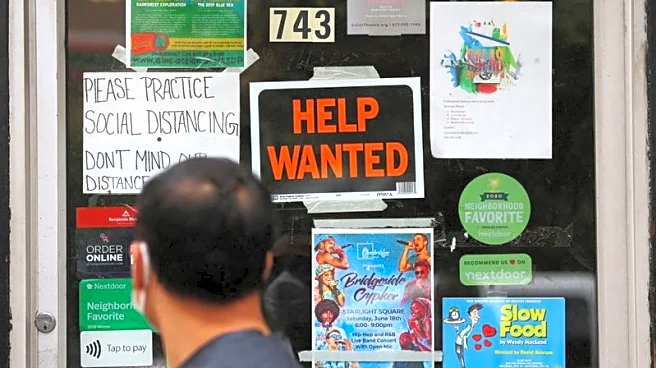Rapid Read • 8 min read
U.S. Representative Lloyd Smucker is actively promoting the 'Workforce Reentry Act' alongside Pennsylvania Attorney General Dave Sunday. The bill, which passed the U.S. House of Representatives with a vote of 378-26 in April, aims to provide stable funding for workforce reentry programs and improve outcomes for ex-offenders. Despite its initial success, the bill was not included in the final 'One Big, Beautiful Bill Act' in July. The legislation seeks to codify an existing program into law, ensuring consistent funding and support for reentry initiatives. According to the Bureau of Justice Statistics, recidivism rates are alarmingly high, with 68% of ex-offenders reoffending within three years of release, and 83% within nine years. The bill is designed to address these issues by providing necessary tools and resources to help individuals rebuild their lives post-incarceration.
AD
The 'Workforce Reentry Act' holds significant potential to impact public policy and societal outcomes by addressing the high recidivism rates among ex-offenders. By ensuring stable funding for reentry programs, the bill could lead to a reduction in crime rates and offer ex-offenders a genuine second chance at reintegration into society. This initiative could benefit communities by decreasing crime and enhancing public safety, while also providing economic benefits through increased employment opportunities for former inmates. The success of such programs, as evidenced by Lancaster County's Workforce Development Board's low recidivism rate of 7%, underscores the potential positive impact of the legislation. If passed, the bill could serve as a model for similar initiatives nationwide, promoting a more rehabilitative approach to criminal justice.
The next steps for the 'Workforce Reentry Act' involve garnering further support to ensure its inclusion in future legislative packages. Stakeholders, including lawmakers, community leaders, and advocacy groups, may continue to lobby for the bill's passage, emphasizing its potential to reduce recidivism and improve public safety. The bill's proponents may also work to raise public awareness about the benefits of stable reentry funding, potentially influencing public opinion and legislative priorities. Should the bill gain traction, it could lead to broader discussions on criminal justice reform and the role of reentry programs in reducing crime and supporting community reintegration.
AD
More Stories You Might Enjoy













